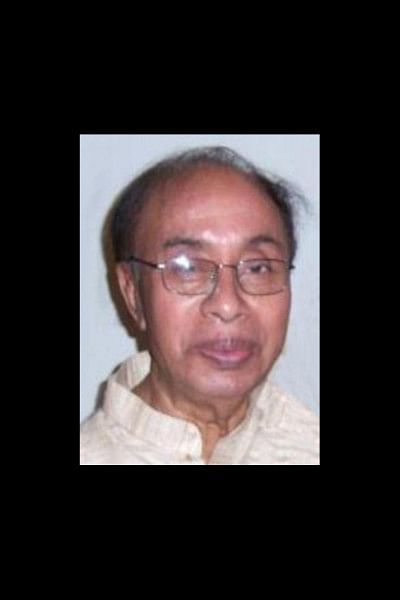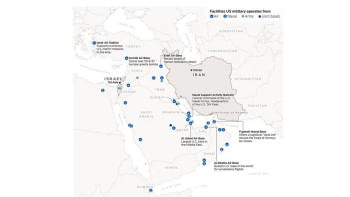Portrait of a patriot

KM Shehabuddin, former Bangladeshi ambassador to the United States and an iconic patriot and diplomat, passed away on Wednesday. Shehabuddin was the first diplomat to defect from the Pakistani Foreign Service on April 6, 1971, even before the provisional Mujibnagar government was formed, and joined the liberation war. At the time, he was posted as the second secretary to the Pakistan High Commission in New Delhi. He retired from government service in 2001 after his tenure as ambassador to the United States. He was the Bangladesh ambassador to the US during President Bill Clinton's Dhaka visit in 2000. Earlier he served as ambassador to Poland, Kuwait andFrance. However, the most remarkable and notable aspect of his career was when he valiantly declared his allegiance to Bangladesh government even before the government was formed.
I heard about him during the tumultuous days of our liberation war in 1971. In fact, the news of his cutting ties with the Pakistan High Commission along with his colleague,the assistant press secretary, Amzadul Haque, was like music to the millions who were on the way to join the muktibahini. Former diplomats still talk about the courage he showed by quitting the Pakistan High Commission, risking the lives of his wife and two young children.
I had the great opportunity to be in close contact with him since 1987 when he came to Kuwait from Poland. I was working as a scientist in that country and incidentally was the President of Bangladesh Association of Kuwait. I was enthralled to find such a legendary person as our Ambassador and worked closely with him for the wellbeing of our around seventy thousand strong Bangladeshi community in Kuwait. Because of our identical ideological concurrence, both our families became very close to each other. Ambassador Shehabuddin never agreed to compromise with the partial and distorted history of the liberation war; the history that was a must-read for every diplomat since the fateful night of August 1975 until June 1996. During that dark era of history, I found him to be the only diplomat who proudly and aggressively narrated the true history of which he was an integral part.
In a victory day celebration presided by me in Kuwait in 1988, in the presence of thousands of audience, he narrated the history of the liberation war and his own association with it in a way that would be possible for an Ambassador to narrate only during an Awami League led government. Following his speech, I privately asked him how he did it. His answer was, "When I could quit the Pakistan High Commission with two young children in 1971, what do I have to lose now?" Once I asked him what led him to take this courageous decision to defect from the Pakistan Embassy in 1971 at that early stage. His response was, "The love for my country."
On August 2, 1990, I received an early morning call and on the other side was Ambassador Shehabuddin. "Are you alright?" he asked worriedly. "Why do you ask?" I questioned curiously. "Don't you know that Iraq has occupied Kuwait? Since your house is near the palace, I am worried about your safety," he said with concern in his voice. I had left Kuwait after three weeks of the invasion while Ambassador Shehabuddin and his men in the embassy provided relentless service to our citizens to safely get them out of the war zone.
After Kuwait was liberated, he was posted in France. After Sheikh Hasina became the Prime Minister in June 1996, he was transferred to Washington as Bangladesh's Ambassador to the US. I wrote a letter of congratulation to him and also informed that I had started writing a political column for The Daily Star. He wrote a wonderful response, a part of which I am tempted to share: "How sweet of you to remember us! You have been always in our mind since we parted company following the Iraqi invasion of Kuwait. Your patriotism and dedication to the country has always inspired me and many others who have been in contact with you. I am sure wherever you are, your first priority is Bangladesh – its political stability, its democracy, its economic growth and its cultural enrichment. I am glad you are writing a column: who can write better about a country you so intensely love."
He wrote a piece titled, "Bangabandhu In My Eyes" in The Washington Times (August 17, 1998), where, in his own words, he spoke about the "greatest Bangalee of all times". In his write-up, he says: "On January 10, 1972, in New Delhi I was standing in total awe in presence of this great man whose call to fight for liberation had led me to be the first Foreign Service Officer to have joined the Liberation War on April 6, 1971, when the government was yet to be formed. He embraced me with such affection that I was overwhelmed with emotion."
After learning about his humble contribution to the liberation struggle, Bangabandhu had him called over from New Delhi to his office in Ganabhaban in Dhaka in April, 1972. Shehabuddin writes: "He warmly embraced me once again and talked to me very affectionately about my family and our experience in the days following our declaration of allegiance to Bangladesh. His kind words are still ringing in my ears, 'Shehab, I know how difficult it was for you and your family to be first to publicly declare allegiance to Bangladesh and work for the liberation war in a foreign capital at a time of great uncertainty. I congratulate you on your deep sense of patriotism.'"
Once again he was called over from Paris to meet Bangabandhu in Geneva in August 1972. In his words, "When my wife and I were taking his leave, he asked me, 'Shehab, is there anything I could do for you?' We stood in the doorway, our eyes moist, and I replied, 'Please take special care of your personal well-being'. Bangabandhu put his hand over my hand and said, 'You worry so much about me. I am always amidst my people. Nothing can happen to me in Bangladesh.' So great was his confidence in his people."
On July 4, 2014, I was in the Hazrat Shahjalal International Airport waiting for my luggage. As it was taking a while, I began a conversation with a young lady standing beside me. A little later, to both of our surprise, I learnt that her name was Sarah Shehabuddin and was the third daughter of Ambassador Shehabuddin and also that she holds a doctorate from Harvard. She and my daughter, Lazina, now a practicing Barrister in Toronto, used to take classical dancing training in Kuwait together. Sarah immediately called her father and passed on the phone to me. He said, "Even though I have not seen you for years, you've always been close to my heart through your column in The Daily Star. Please continue writing." I promised to meet him before I left Bangladesh. Unfortunately, I could not keep my promise. Today, this great patriot has departed to the land of no return.
The writer is the Convenor of the Canadian Committee for Human Rights and Democracy in Bangladesh.

 For all latest news, follow The Daily Star's Google News channel.
For all latest news, follow The Daily Star's Google News channel. 



Comments